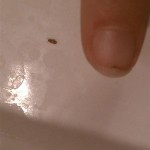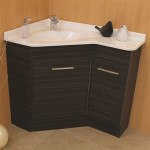How to Get Rid of Sulfur Smell in the Bathroom
A sulfur smell in a bathroom, often likened to rotten eggs, is an unpleasant and potentially concerning problem. Identifying the source of the odor is crucial for effective remediation. While the smell itself isn't always dangerous, the underlying cause could indicate a problem requiring immediate attention. This article details the common causes of sulfur smells in bathrooms and provides a step-by-step guide to identifying and eliminating the offensive odor. Emphasis will be placed on understanding the source rather than simply masking the smell, as covering it up only provides a temporary and ultimately ineffective solution.
It's critical to understand that persistent, strong sulfur smells can sometimes be indicative of a more serious issue than just a minor plumbing problem. Large concentrations of hydrogen sulfide, the gas primarily responsible for the rotten egg smell, can be dangerous and even toxic at high levels. If the smell is overpowering or accompanied by symptoms such as nausea, dizziness, or difficulty breathing, the area should be immediately ventilated, and professional help should be contacted. Leaving the building and calling a qualified plumber or gas company is imperative in such situations.
Identifying the Source of the Sulfur Smell
Pinpointing the origin of the sulfurous odor is the first and most important step. A systematic approach is required to eliminate potential sources one by one. This involves checking all the fixtures and drains in the bathroom, as well as considering external factors that may be contributing to the problem.
Water Supply: The water supply itself is a common culprit. Sulfur bacteria in the water heater or well water (if applicable) can produce hydrogen sulfide. To test this, run cold water and hot water separately. If the smell is only present in the hot water, the water heater is the likely source. If the smell is present in both hot and cold water, the issue could stem from the well water supply or a municipal water issue. In the case of well water, having the water tested by a professional is highly recommended.
Drains: Bathroom drains are breeding grounds for bacteria, especially when hair and other organic matter accumulate. These bacteria can produce hydrogen sulfide gas as they decompose organic waste. A clogged drain can exacerbate this issue, trapping the gas and causing it to become more noticeable. Check the sink drain, shower drain, and tub drain. The P-trap, the curved section of pipe under the sink, is designed to hold water and prevent sewer gases from entering the bathroom. If this trap is dry, sewer gases can easily escape into the room.
Toilet: While less common, the toilet can also be a source of sulfur smells. A cracked toilet bowl or a faulty wax ring seal can allow sewer gases to leak into the bathroom. Examine the toilet for any visible cracks and check the floor around the base of the toilet for signs of water damage, which could indicate a leaking wax ring.
Ventilation: Inadequate bathroom ventilation can worsen the problem. If the bathroom lacks a functioning exhaust fan or has poor natural ventilation, hydrogen sulfide gas can build up and become more noticeable. Ensure the exhaust fan is working properly and use it during and after showers to help remove moisture and odors.
Nearby Areas: Consider whether the smell might be originating from outside the bathroom. A nearby septic tank, sewer line problems, or even a dead animal under the house can all contribute to a sulfur smell that permeates into the bathroom. Inspect the area around the house, paying attention to any potential sources of the odor.
Remediation Steps
Once the source of the sulfur smell has been identified, the appropriate remediation steps can be taken. The remediation method will vary depending on the specific cause of the odor.
Water Heater Treatment: If the water heater is the source of the problem, several options are available. Flushing the water heater can help remove sediment and bacteria. This involves turning off the power to the water heater, draining the tank completely, and then refilling it. In some cases, shocking the water heater with hydrogen peroxide or chlorine bleach can kill the sulfur bacteria. However, extreme caution should be exercised when using these chemicals, and the manufacturer's instructions should be followed carefully. It's also worth noting that this may not be a permanent solution, and the bacteria may return over time. If the problem persists, replacing the anode rod in the water heater may be necessary. The anode rod is designed to corrode instead of the tank itself, but when it becomes depleted, it can contribute to the growth of sulfur bacteria. Consulting with a plumber is recommended for complex water heater issues.
Drain Cleaning: For drain-related odors, thorough cleaning is essential. Pouring boiling water down the drain can help to dissolve some of the accumulated debris. However, boiling water should be used with caution, as it can damage PVC pipes. Alternatively, a mixture of baking soda and vinegar can be used to create a fizzing action that dislodges debris. Pour one cup of baking soda down the drain, followed by one cup of vinegar. Let the mixture sit for about 30 minutes, then flush with hot water. For more stubborn clogs, a drain snake or plumber's auger can be used to physically remove the blockage. Chemical drain cleaners should be used sparingly and with caution, as they can damage pipes and pose a health hazard.
Toilet Repair: If the toilet is the source of the smell, it needs to be repaired or replaced. A cracked toilet bowl should be replaced immediately to prevent further leaks and potential water damage. If the wax ring is leaking, it needs to be replaced. This involves removing the toilet, scraping off the old wax ring, and installing a new one. Ensure the toilet is properly seated and sealed before reconnecting the water supply. If unsure about performing this repair, it is best to hire a qualified plumber.
Ventilation Improvement: Ensure that the bathroom exhaust fan is functioning properly and is adequately sized for the room. If the bathroom lacks a fan, consider installing one. Opening a window during and after showers can also help to improve ventilation and reduce moisture buildup. Running a dehumidifier can also reduce humidity levels and inhibit the growth of odor-causing bacteria.
Addressing External Sources: If the sulfur smell is originating from outside the bathroom, the source needs to be addressed directly. Septic tank problems should be addressed by a septic system professional. Sewer line issues should be handled by a qualified plumber or sewer contractor. If a dead animal is suspected, contact animal control or a pest removal service.
Preventative Measures
Preventing the recurrence of sulfur smells in the bathroom involves implementing several preventative measures. These measures focus on maintaining clean drains, ensuring proper ventilation, and addressing potential water quality issues.
Regular Drain Cleaning: Regularly cleaning the bathroom drains can help prevent the buildup of organic matter that feeds odor-causing bacteria. A monthly drain cleaning routine using a mixture of baking soda and vinegar can be effective. Avoid pouring grease or oil down the drain, as this can contribute to clogs and odors. Use drain screens to catch hair and other debris before it enters the drainpipe.
Proper Ventilation: Ensure the bathroom exhaust fan is used regularly and is functioning properly. Clean the fan vents periodically to remove dust and debris that can reduce its effectiveness. Leave the bathroom door open after showering to allow for better air circulation and to help dry out the room. Consider using a dehumidifier in the bathroom, especially in humid climates.
Water Heater Maintenance: Regularly flush the water heater to remove sediment and bacteria. Consider replacing the anode rod every few years to prevent corrosion and the growth of sulfur bacteria. If you have well water, have it tested regularly for sulfur bacteria and other contaminants. Consider installing a water filtration system to remove impurities and improve water quality.
Monitoring and Early Detection: Pay attention to any unusual smells in the bathroom and investigate them promptly. Early detection of a problem can prevent it from escalating into a more serious and costly issue. Regularly inspect the toilet for leaks and cracks. Ensure the P-traps in the sinks and showers are filled with water to prevent sewer gases from escaping into the bathroom. If you suspect a problem with the septic system or sewer line, contact a professional immediately.
Addressing a sulfur smell in the bathroom requires a thorough understanding of potential sources and implementing effective remediation strategies. By systematically identifying the cause and taking appropriate action, the offensive odor can be eliminated, and the bathroom environment can be restored to a pleasant and healthy state. Furthermore, implementing preventative measures can help to avoid future occurrences and maintain a clean and odor-free bathroom.

Your Toilet Smells Like Rotten Eggs Mr Rooter

How To Treat Sulfur Odors In Well Water Smells Like Rotten Eggs

How To Remove Sulfur Smell From Your Hot Water Heater
Bathroom Smell Like Sewage Possible Causes And Fixes Howstuffworks

Get Rid Of Shower Drain Smells Mr Rooter Syracuse

What Causes A Sewer Smell In The Bathroom Make It Right

Do Your Drains Smell Like Rotten Eggs Huft Home Services

What S The Best Solution For When Water Smells Like Sulfur

Sewer Odor As A Sign Of Issues What To Do When You Smell In Your House Nw

Septic Stench What That Rotten Egg Smell Means And To Do About It Flohawks Plumbing
Related Posts







